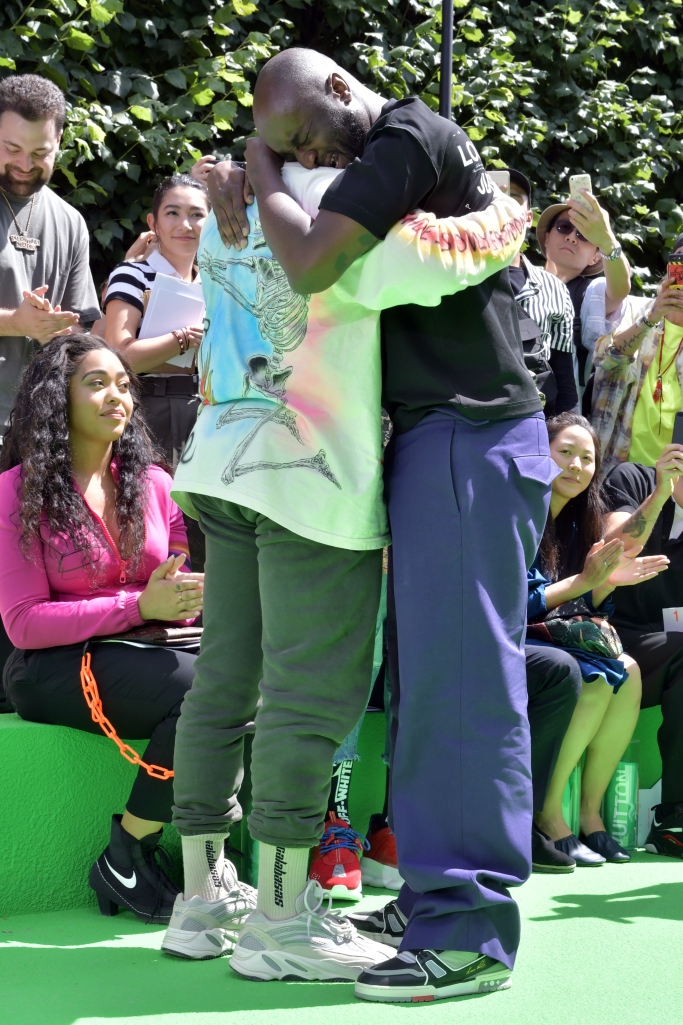A Sign of Progress in the Fashion Industry: The Rise of Virgil Abloh and Streetwear Fashion
Virgil Abloh is the most influential figure in fashion this year, and the Lyst Index has proved it by naming his Milan-based label, Off-White, the “hottest brand on the planet.”
The. Freaking. Planet.
That means that an American black man’s streetwear label has surpassed the popularity of top brands like Balenciaga, Gucci, and Prada for the first time.
The Illinois native first entered the fashion industry under an internship with Fendi in 2009, where he met long-time friend and collaborator, Kanye West. Here, West and Abloh were “disruptive in the best way,” according to now Louis Vuitton CEO, Michael Burke.
From there, in 2010, Abloh became the creative director of West’s creative agency, Donda. Under this position, Abloh served as the art director for West and Jay-Z’s joint album, Watch the Throne. His creativity earned him a Grammy nomination, ultimately pulling him into both the hip-hop and commercial circles.
Then in 2012, Abloh founded Off-White, which according to Vogue is a combination of, “streetwear, luxury, art, music, and travel.” However, the label is mostly known for its luxurious streetwear—a comfortable, modern style that encompasses the aesthetic of hip-hop artists along with Californian skaters and and surfers. The main elements of the style are simply T-shirts, jeans, baseball caps, and sneakers.
Today, fancy streetwear is essentially the thing. According to Vox, it’s today’s “luxury.”
With the popularization of “ugly” dad sneakers, baggy sweatshirts and cargo pants, streetwear has seemingly become mainstream. Especially for a black teenager like me, who grew up watching her favorite hip-hop and R&B artists sport styles like these, it goes to show how Abloh’s rise in a white-washed industry is a mark of development for diversity and the rise of black culture.
In 2017, Abloh and Off-White partnered with Nike—known for its infamous footwear and going against the status-quo—to create “The Ten,” a redesign of the company’s 10 best-selling styles. The popularity of the uniquely designed sneakers soared, displaying Abloh’s unconventional and unmatched style.
Disruptivity is apart of Abloh’s nature. He is bold. He is shameless. And he is a symbol of the progress made by the Eurocentric and white-washed fashion industry.
This past March, Abloh became the artistic director of Louis Vuitton’s menswear collection , making him the first black person to design a collection for the legendary 165-year-old French retail company. His boldness, his shamelessness, and his forward-thinking have gotten him to where he is now in the industry—an innovator and visionary.
And since then, Abloh has not veered from his authenticity. The son of Ghanaian immigrants used hip-hop and R&B artists Playboi Carti, Kid Cudi, Steve Lacy, and Dev Hynes as models in his first Louis Vuitton show. This effort that also shows the dominance of America’s most popular music genre on the world of fashion and mainstream culture.
Additionally, Abloh collaborated with Nike again this summer to design the “Queen” Collection for tennis icon, Serena Williams, who debuted the Off-White x Nike look at the U.S. Open. According to Nike, the “Queen” Collection brought together, “two transcendent figures [Serena Williams and Virgil Abloh] who find common ground in pushing boundaries and inspiring youth.” Again, Abloh displayed his unconventional creativity.
So, what does it mean to have a black man be the CEO of the hottest brand of the world? For me, it is more than a sign of progress for the black community. It is a representation of how the world is recognizing our creativity, our drive.
The black community is being recognized in ways we have not been before. In a world where fashion, at times, defines your identity and your class, having a first-generation, black man from the suburbs of Chicago become the figurehead of fashion today, is monumental.
“We were a generation that was interested in fashion and weren’t supposed to be there,” Virgil told W Magazine when he became the creative director for Louis Vuitton menswear.
However, Abloh proves that black people are supposed to be there. They’re supposed to be a part of the industry and make their mark.
Thank you, Virgil.



